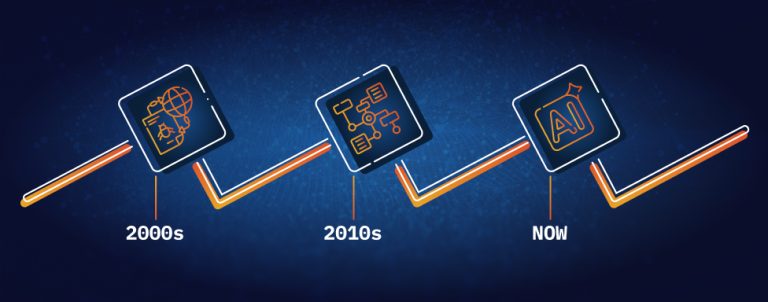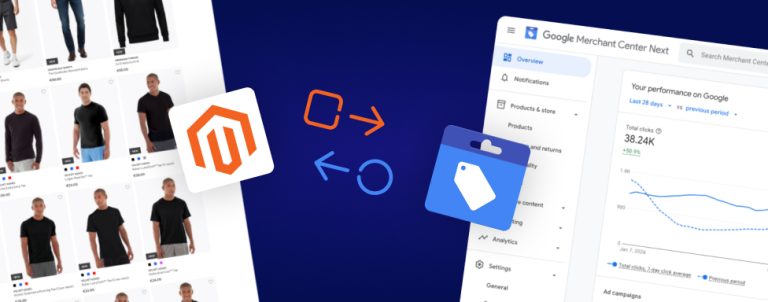As we bid farewell to the year behind us, how do we see the state of Magento 2 and open source eCommerce in general, and what lies ahead for merchants worldwide? Here’s our take on what the new year will bring.
2017 was a challenging year in many ways for us at Inchoo. As we continued our growth, we had to invest quite a lot of time and effort into improving a lot of our internal processes and adopting some new practices in everyday work. We took on some amazing new clients, we brought Meet Magento to Croatia for the first time, traveled a lot and continued to share our knowledge with Magento ecosystem, which is, sort of, our “thing”.
We also received a couple of national and local awards for our achievements in the business community, all the while tackling Magento 2 projects. 🙂
Which brings us to the main topic of this blog post. How and where we see ourselves in the months and years to come. This is becoming an increasingly important question to answer for many companies similar to Inchoo. It’s important to us, but even more so to our clients as they recognize us as their business partners for growth.
Who are we?
Quick disclaimer – we breathe eCommerce. Or, if we want to be up to speed, we can drop the “e” altogether, right? And this is not going to change, we are not going to suddenly pivot. After all, we’re not a startup in early stages still looking for our place under the sun. But, there are some decisions we need to make.
We’ve been putting all the eggs in one basket (cart?) for quite some time now. It has worked so far, and it might still work for the foreseeable future. However, we have to diversify a bit and keep our options open, and that will become more and more apparent as we move into 2018 and beyond.
Where’s Magento?
Magento and open source are still at the very core of our beings, and it’s clear that there are still no high quality solutions out there that can match Magento’s feature set and robustness. With Magento’s recent releases and introduction of B2B, it is clear that their sights are set on bigger and larger things.
Securing a $250M investment for Asian market expansion and being listed as a Leader in Gartner Magic Quadrant for Digital Commerce earlier this year only goes to show everyone that Magento is a big league player.
And this comes with a price, though, especially around making sure merchants can manage their solution on an ongoing basis and ensure it is kept upgraded and secure. With Magento 2, the days of being able to operate a rather inexpensive website on this platform are long gone.
If you add to the mix the fact that M2 is still a long way from being what it set out to be (and Magento owning up to it by prolonging the support for M1 until June 2020), this leaves us in a position that’s both an opportunity and a threat to both Magento partners and Magento itself.
Where’s the catch?
The opportunity lies in many merchants realizing they have to rely on solid development partners with proven track record. The perceived appeal of having hundreds of thousands of Magento developers within arm’s reach fades when you repeatedly hit the wall with subpar quality of work. Merchants have a growing business to run and can no longer afford to change support teams very often. This opens up new business opportunities to those of us who can provide high quality services.
The threat here is that many merchants may be left unattended to and underserved with the lack of quality support within Magento ecosystem and may decide to jump ship. Is this a bad thing, especially if those are Magento Open Source merchants, you may ask? Of course it is, as Magento has been able to become what it is today primarily because Magento Community Edition (now Open Source) and its penetration to the eCommerce market. This traction allowed it to grow rapidly and become almost a commodity in the eCommerce world.
If many merchants start moving away from it, other platforms will profit from this (and many already are). I don’t believe there will soon be another Magento-like platform that will create similar boom in the open source world, however SaaS solutions are here, and they aren’t just knocking, they’re huffing and puffing, threatening to blow the house in.
What’s in a SaaS?
SaaS has its own promise and appeal, and let’s face it – in our everyday lives we prefer those types of products and services, right? And if you’re running an eCommerce business, you have quite a lot on your plate. Even without having to endure the blame game between the developers and a hosting company, or worrying about how and when to apply the latest security update (will it break something or not?).
This promise of simplicity and being able to focus on growing your business above all else is what’s making SaaS solutions very interesting to a lot of folks out there.
And if we’re really honest about it, Magento is not a good fit for everyone. For us as an eCommerce agency, it is a good thing we can diversify our offering. We have to provide alternative solutions to merchants who don’t need or can’t handle the complexities of Magento. And with complexities I mean not just the software, but everything involved around running a Magento store.
Shopify looks like a serious contender for many small and mid-sized merchants that fit the profile. The profile being – those who don’t have complex products and service, use rather straightforward workflows, and need a simple solution that just works. Its clear advantages over most other solutions are time to market, low cost setup and the ability to scale without the need to break the bank.
One size doesn’t fit all
The only way we can position ourselves as true eCommerce partners to our clients that come from various industries and backgrounds is to have and maintain a solid playbook. A playbook that will not force the same plays over and over with no regard for the opposition or field conditions.
We will continue to share our knowledge and provide our best advice to everyone we come in contact with. And we will continue to build quality relationships with our peers in the eCommerce ecosystem, so that we can together write new success stories.
We look forward to what 2018 brings and can’t wait to kick it off! In the words of a Dream Big poem:
The start of something new
Brings the hope of something great.
Happy new year, everyone!



